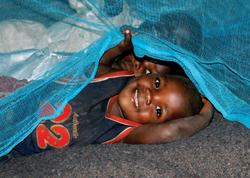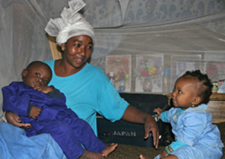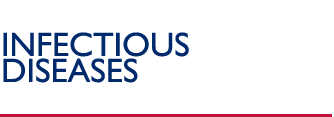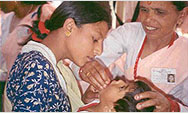Malaria: Overview
| |
This is a slide show for World Water Day which is March 22, 2009. Each photo is of a child washing their hands with soap or getting clean water from different countries around the world.
 |
| |
April 25th marks World Malaria Day, when countries around the world come together to help raise global awareness of malaria, celebrate progress, and reaffirm their commitment to fighting the disease. Learn more about World Malaria Day 2009.
Source: Gilbert Awekofua, Courtesy of Photoshare |
Saving Lives
Every 30 seconds an African child dies of malaria. At least 1 million infants and children under 5 in sub-Saharan Africa die each year from the mosquito-borne disease.
A Global Leader in
Fighting Malaria
USAID has been committed to saving lives and fighting malaria since the 1950s. The Agency works closely with national governments to build their capacity to prevent and treat the disease. USAID also invests in the discovery and development of new antimalarial drugs and malaria vaccines.
In addition to its ongoing malaria programs, the Agency also manages programs through the President's Malaria Initiative (PMI), a $1.2 billion, five-year initiative to control malaria in Africa announced by former President Bush in June 2005. PMI is a collaborative U.S. Government effort led by USAID, in conjunction with the Department of Health and Human Services (U.S. Centers for Disease Control and Prevention), the Department of State, the White House, and others.
The goal of PMI is to reduce malaria deaths by half in 15 target countries in Africa by reaching 85 percent of the most vulnerable groups — children under 5 years of age and pregnant women — with proven and effective malaria prevention and treatment control measures: insecticide-treated mosquito nets, indoor residual spraying, lifesaving antimalarial drugs, and treatment to prevent malaria in pregnant women.
The 15 PMI focus countries were brought into the Initiative in a phased fashion:
- Beginning fiscal year (FY) 2006: Angola, Tanzania, and Uganda
- Beginning FY 2007: Malawi, Mozambique, Rwanda, and Senegal
- Beginning FY 2008: Benin, Ethiopia (Oromia Region), Ghana, Kenya, Liberia, Madagascar, Mali, and Zambia
|
 |
|
| |
The President’s Malaria Initiative (PMI) is using several different methods of making insecticide-treated bednets available to the Senegalese people. So far, PMI in Senegal has used these various methods to satisfy 614,977 people’s preferences for bednets.
Read more... |
|
| |
 |
|
PMI funding in FY 2006 was $30 million, rose to $135 million in FY 2007, to $300 million in FYs 2008 and 2009, and will increase to $500 million in FY 2010.
In each of the focus countries, PMI works closely with ministries of health and national malaria control programs and supports their national malaria control strategies and plans in coordination with other national and international partners, including the Roll Back Malaria Partnership, the Global Fund to Fight AIDS, Tuberculosis and Malaria, the World Bank Malaria Booster Program, UNICEF, World Health Organization Global Malaria Program, and nongovernmental organizations, including faith-based and community groups, academia, and the private sector.
The Agency also provides support to malaria control efforts in three other nonfocus countries in Africa – Democratic Republic of the Congo, Nigeria, and Southern Sudan – and to two regional malaria control efforts in the Amazon Basin of South America and the Mekong Delta region of Southeast Asia. The latter two programs focus primarily on issues related to the identification and containment of antimalarial drug resistance.
USAID’s Strategy for Combating Malaria
USAID is a member of the Roll Back Malaria Partnership, a global initiative made up of more than 90 partners whose goal is to halve the burden of malaria by 2010. The Agency’s expanded response to malaria supports the international goals and targets of the Abuja Summit [PDF, 68KB], the Millennium Development Goals, the White House Summit on Malaria, and the Global Malaria Action Plan.
The Agency’s malaria program focuses on six key areas:
President’s Malaria Initiative
For more information on USAID’s malaria programs and the PMI, please contact USAID at
chthomas@usaid.gov. |


